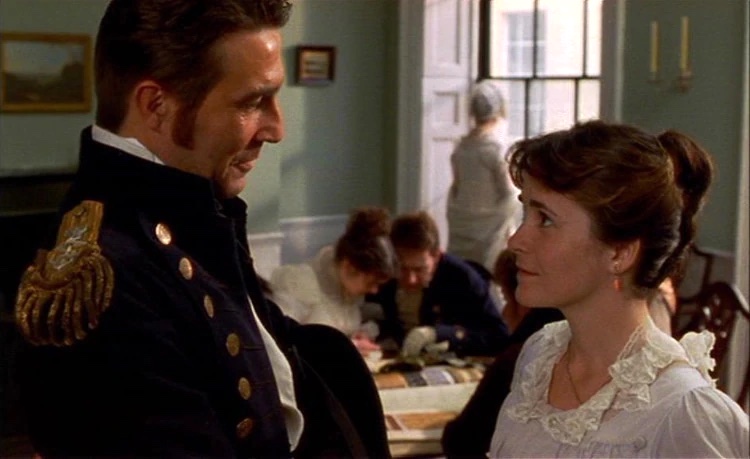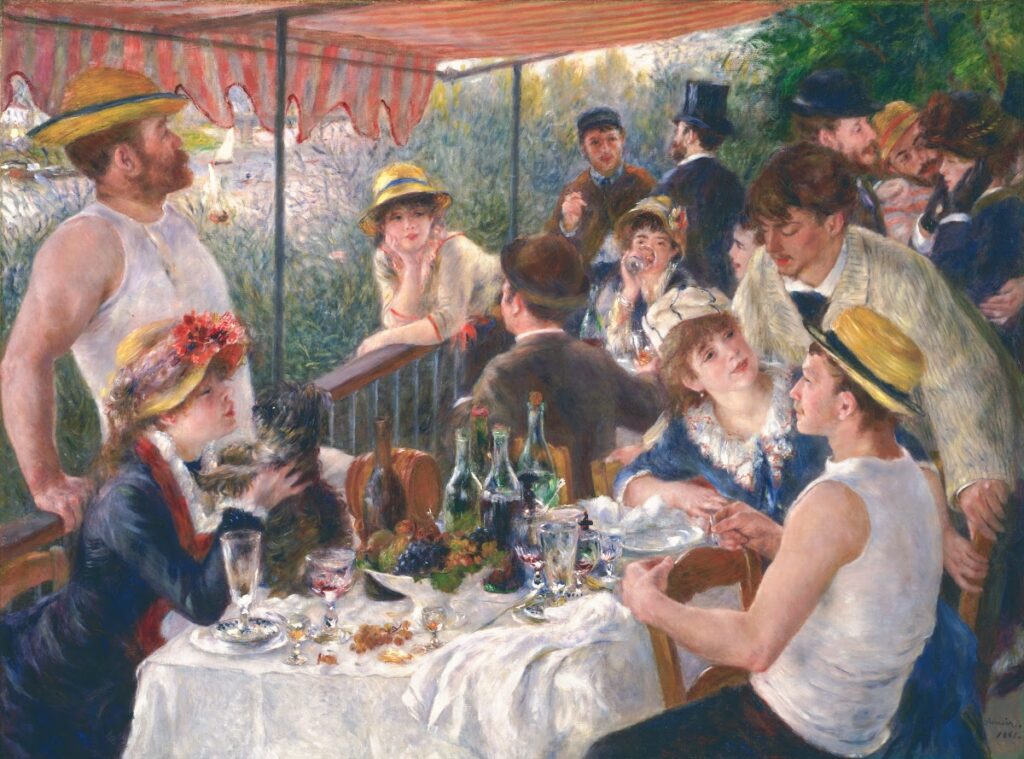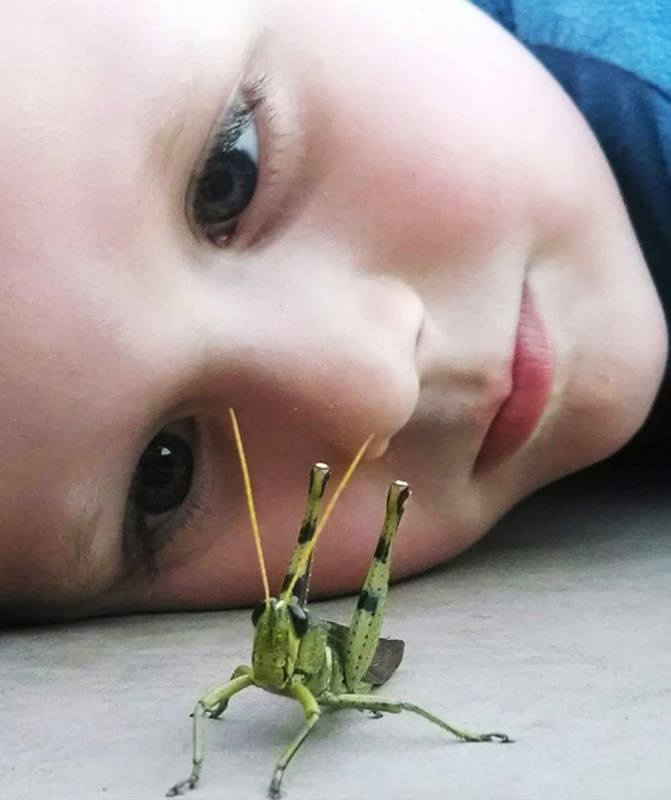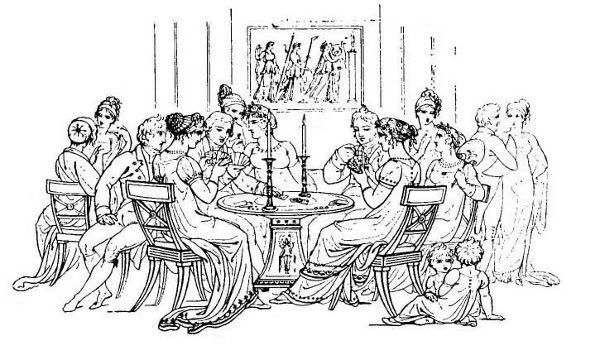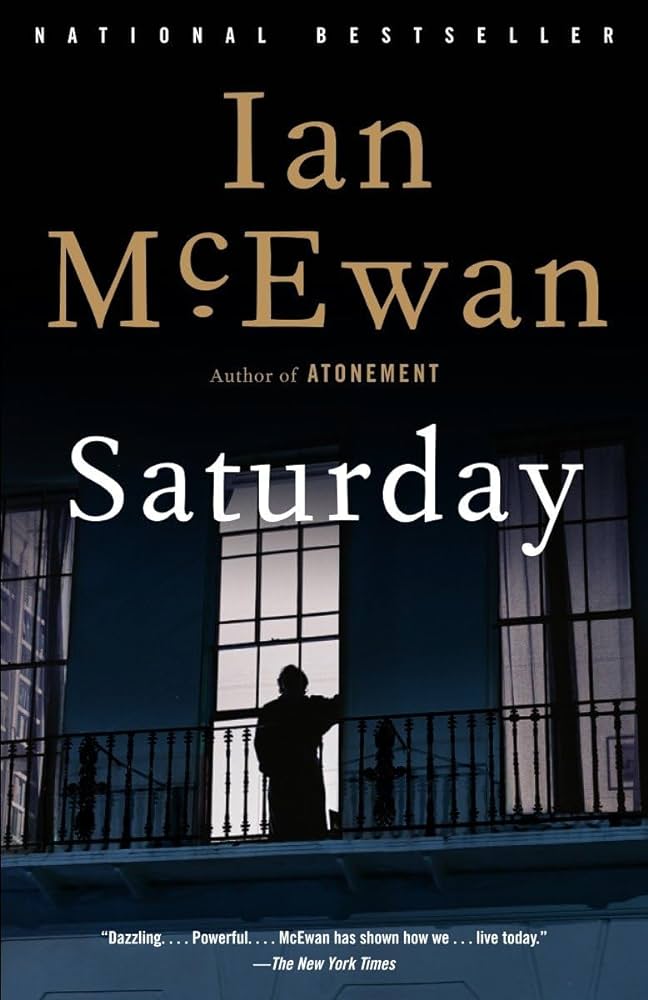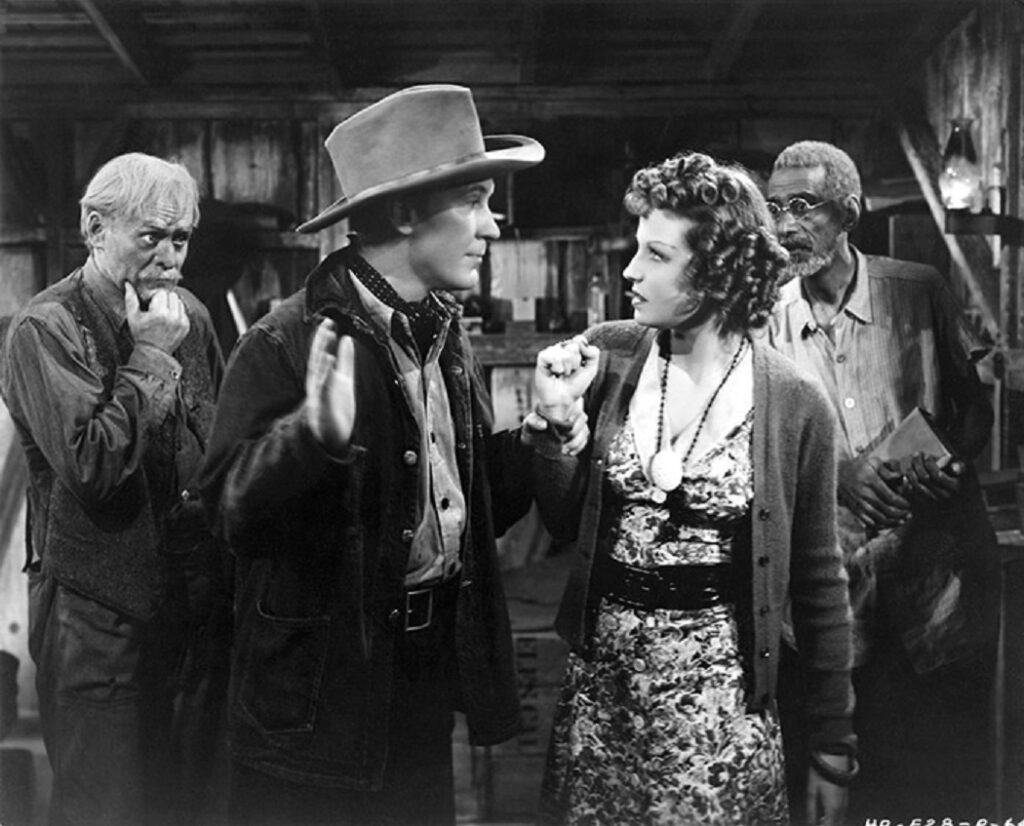Note: If you wish to receive, via e-mail, (1) my weekly newsletter or (2) daily copies of these posts, notify me at rrbates1951@gmail.com and indicate which you would like. I promise not to share your e-mail address with anyone. To unsubscribe, send me a follow-up email.
Thursday
This evening I will be teaching the card game, featured in Jane Austen’s novel Mansfield Park, to a gathering at Oberlin College. Following is the talk I will be giving, which I also gave when I taught the game at Vanderbilt University Library in 2019 and at Sewanee’s Dupont Library in 2023.
The game is Speculation, a deceptively simple game. As Austen observes, Fanny Price—who never plays cards—masters the basic rules in three minutes. Players gather around tables in groups of five or six, pay into a pot, and then receive three cards each, which are dealt face down. The next card, dealt face up, is trump. The players then reveal their cards one at a time, with the highest trump card winning the pot. Speculation enters in when, at any time, the player with the highest card may choose to buy facedown cards from the other players, thereby ensuring that his or her card remains the highest.
I will note that, no matter how lovely our setting turns out to be, super snob Mrs. Elton of Emma would find fault with it. Here’s how she judges a card gathering she attends and what she herself plans in response:
She was a little shocked at the want of two drawing rooms, at the poor attempt at rout-cakes, and there being no ice in the Highbury card-parties. Mrs. Bates, Mrs. Perry, Mrs. Goddard and others, were a good deal behindhand in knowledge of the world, but she would soon shew them how everything ought to be arranged. In the course of the spring she must return their civilities by one very superior party—in which her card-tables should be set out with their separate candles and unbroken packs in the true style—and more waiters engaged for the evening than their own establishment could furnish, to carry round the refreshments at exactly the proper hour, and in the proper order.
Turning my attention to card games in general, I will observe that literature has often used cards for thematic purposes. To cite a random example, Jules Verne makes good use of the game whist in Around the World in 80 Days. What better way to capture an effete but steely-spined Phileas Fogg than by depicting him calmly taking tricks as he circumnavigates the globe? The image brings together the decorous drawing room and Britain’s adventurous colonial expansion.
Austen definitely uses card games for thematic effect. All but Austen’s youthful novel Lady Susan make some mention of cards. Sometimes cards seem to be a married guy thing: Mr. Allen in Northanger Abbey prefers cards to dancing and leaves the ladies to their own devices. So does the crass Mr. Hurst in Pride and Prejudice, and when he can’t find people to play with, he sulks by lying down on the couch. In Emma, there are agonized discussions about how to set up an evening affair so that dancers and card players have separate spaces. Mr. Wodehouse plays whist whenever Emma can set up a foursome, although he forgoes it when he wants to spend time talking to his other daughter during a visit.
And then there’s high stakes gambling. Wickham’s villainy is finally confirmed when it’s learned that he is a gamester. Tom Bertram in Mansfield Park also is an enthusiastic card player, which may explain how he runs into financial trouble, costing his brother a parish.
But women play cards too. Although Elizabeth turns down a card game in Pride and Prejudice, it’s because the Bingleys are playing for more than just pennies. Elsewhere we see Elizabeth playing lottery, a game that requires minimal attention and that she uses as cover to talk to Wickham.
Quadrille, on the other hand, discourages outsiders because of its complex rules, which is why the snobby Catherine de Bourgh insists upon it in Pride and Prejudice. Because of its complexity, quadrille would evolve into the simpler whist, which is what the Bennets play, as does Mr. Wodehouse.
Jane Bennet, meanwhile, knows that she and Bingley are right for each other because their simple natures prefer Vingt-un, which would evolve into blackjack, over Commerce, a forerunner of poker.
Cards is an ideal activity for this society because it gives people something to talk about. And then, when they run out of things to say, they can focus on the game. All in all, the activity is more entertaining than, say, conversing on the respective heights of Lady Middleton’s children.
But there’s another marker here. Attitudes towards cards seems to divide Austen’s classicism from her romanticism. The romantic Marianne detests cards, preferring piano playing. To be sure, card playing provides her with a way of interacting with Wickham when she’s in society—he cheats on her behalf—but she’d much rather be talking privately with him about their mutual love of Cowper’s poetry, which they can do when they’re riding or walking. Persuasion’s Anne Elliot, a deeper soul, prefers substantive conversations with Mrs. Smith to the vapid card parties of Bath.
A conversation about cards marks an important moment in Anne’s reconciliation with Wentworth:
“You have not been long enough in Bath,” said he, “to enjoy the evening parties of the place.”
“Oh! no. The usual character of them has nothing for me. I am no card-player.”
“You were not formerly, I know. You did not use to like cards; but time makes many changes.”
“I am not yet so much changed,” cried Anne, and stopped, fearing she hardly knew what misconstruction.
It’s worth that, when real love is in the air, the characters do not play cards. Elizabeth may play cards with Wickham (Pride and Prejudice) but she never does so with Darcy, nor does Emma play cards with Knightley. To be sure, Fanny Price (Mansfield Park) is in a card game with Edmund Bertram, but in that case he’s focused on Mary Crawford, not on her.
It is in this last novel that a card game receives the most thorough treatment. We know from a letter to her sister Cassandra about their nephews that Austen herself enjoyed the game:
Our evening was equally agreeable in its way. I introduced speculation, and it was so much approved that we hardly knew how to leave off.
In the game, the players ante into a pot and then are dealt three cards, all facedown. A final card is then dealt face-up, becoming the trump card. One by one the players reveal their cards, with the highest card in that suit winning the pot.
Players speculate in various ways. They may offer to buy the card from the dealer if they think it will be the final winner. The player holding the highest card at any particular moment may buy facedown cards from other players to make sure that this particular trump card holds. Other speculative purchases are possible as well.
If the game was so popular, it may have been in part because speculation was in the air. Austen wrote her novels during the Napoleonic wars, and historian Jenny Uglow notes that national borrowing primed the pump, benefitting
army contractors, who provided massive quantities of tents, knapsacks, canteens, uniforms, shoes, muskets, gunpowder, ships, maps, fortifications, meat, and biscuit; bankers and speculators, who funded the supplies as well as subsidies to Britain’s allies…; [and] revenue agents, who collected the wide variety of taxes imposed to finance the wars…
It’s also worth noting that Britain had banned the importation of new slaves to the colonies seven years before Mansfield Park, throwing uncertainty about the future of slavery itself. This may be why Sir Thomas must sail to the America’s to check on conditions there. It was a live question, therefore, whether one should continue to speculate on overseas plantations.
Seen through the lens of the card game, all of Austen’s major novels can be seen as featuring Speculation plots or subplots. For instance:
–In Northanger Abbey, Isabel Thorpe trades in a certain high card (William Morland) for the possibility of a higher one (Captain Frederick Tilney) but ends up with nothing;
–The opposite occurs in Sense and Sensibility. Willoughby thinks, to ensure his inheritance from Mrs. Smith of Allenham, that he must trade in Marianne, whom he loves, for Miss Grey. The marriage is unhappy and he later learns it was a needless sacrifice: had he played his cards right, he could have gotten both the Allenham estate and Marianne;
–Lucy Steele in Sense and Sensibility proves more adept at speculation, trading in the disinherited Edward Ferrars for his brother Robert;
–in Pride and Prejudice, Elizabeth to proves herself a skilled speculator, passing on Mr. Collins and hauling in the far wealthier Darcy;
–her sister Lydia, on the other hand, is a reckless gambler, makes a bad bet by running off with Wickham. She is only saved from ruin by the intervention of others;
–Finally in Pride and Prejudice, Charlotte Lucas does a cold-blooded analysis of the hand she has been dealt and figures that Mr. Collins is about the best she can do;
–Mary Crawford reveals her hand in Mansfield Park by showing she wants Robert Bertram to die so that the man she is set on (younger brother Edmund) will be a squire rather than a rector. Like Isabel Thorpe, she aims too high and ends up with nothing;
–Maria Bertram grabs a sure thing (Rushworth) but is so unsatisfied with him that she ruins her life. Her sister, meanwhile, grabs what she knows she can get (Yates) but only after she realizes a higher card is out of reach (Henry Crawford);
–Fanny Price passes up a certain winner (Crawford) and is rewarded with higher one (Edmund);
–Emma, playing with someone else’s money, advises Harriet to pass up a sure thing (Roger Martin) and speculate on first Mr. Elton and then Frank Churchill. Unfortunately, Emma so infuses Harriet with speculative fever that the young woman goes all in and targets Knightley—and nearly ends up with nothing at all;
–Finally, in Persuasion a young Anne Elliot makes a mistake in not speculating—she is persuaded that she be cautious rather than to marry a speculator—which is to say, to marry Captain Wentworth, who although poor is confident in his powers. The captain is sure he can parlay “a ship not fit to be employed” into a fortune and in fact he does. Anne later declares she would never counsel a young friend to hold back as she did.
Like Elizabeth Bennet and Fanny Price, Anne gambles on everything or nothing, passing up Robert Musgrove, Benwick, and Mr. Elliot. Her gamble pays off as she lands Wentworth after all. The reason these three heroines receive the payoffs they desire is that they step beyond the cash nexus altogether. Love and character count more than money. In other words, they are not moved by mere acquisition.
In this context, it’s useful to recall the scene where Crawford coaches Fanny in how to play Speculation. While she picks up the game quickly, she can’t grasp its predatory dimensions:
…for though it was impossible for Fanny not to feel herself mistress of the rules of the game in three minutes, [Crawford] had yet to inspirit her play, sharpen her avarice, and harden her heart.
In short, Speculation reenacts a pressing drama of the age–just as, say, the board game Monopoly did for several decades in America.
In the various Mansfield Park characters, we see the full range of playing styles to be found amongst Speculation players. The main lesson: When you gamble on the future, be bold but not reckless. Take calculated risks, going big but not too big. Here are the six card players and their approaches to the game:
–Poor but ambitious William Price will succeed only if he takes risks, plays a bold game, and does not hesitate to take advantage of others–who in this case include his accommodating sister;
–Fanny Price, on the other hand, allows others to exploit her, at least when it comes to cards;
–Henry Crawford, very manipulative, claims he wants to help others and to some extent does so. But given that he uses his position as coach to get close to Fanny, everything he does must be regard skeptically;
–Lady Bertram is clueless and depends on others to take care of her;
–Mary Crawford plays emotionally and recklessly, sometimes paying more for a card than the pot is worth;
–Edmund Bertram, as far as we can tell, plays a balanced game. The outcome doesn’t mean as much to him as to the less privileged William Price, which probably means he doesn’t haggle as much.
From having taught the game in the past, I could understand why Austen enjoyed it so much. It’s a noisy game with a lot of personal interaction, as players haggle over card prices and cheer or moan as a card wins or loses. Different people reveals themselves to be Fanny or William Prices, Henry or Mary Crawford, the two Bertrams.
I saw also how Speculation allows a lot of side-talk. The game doesn’t require as much concentration as, say, bridge. In that way, it serves Austen’s artistic purposes: characters can have important conversations without interrupting the flow of the action.
Above all, Speculation offers people a wonderful way to come together and spend an evening.
